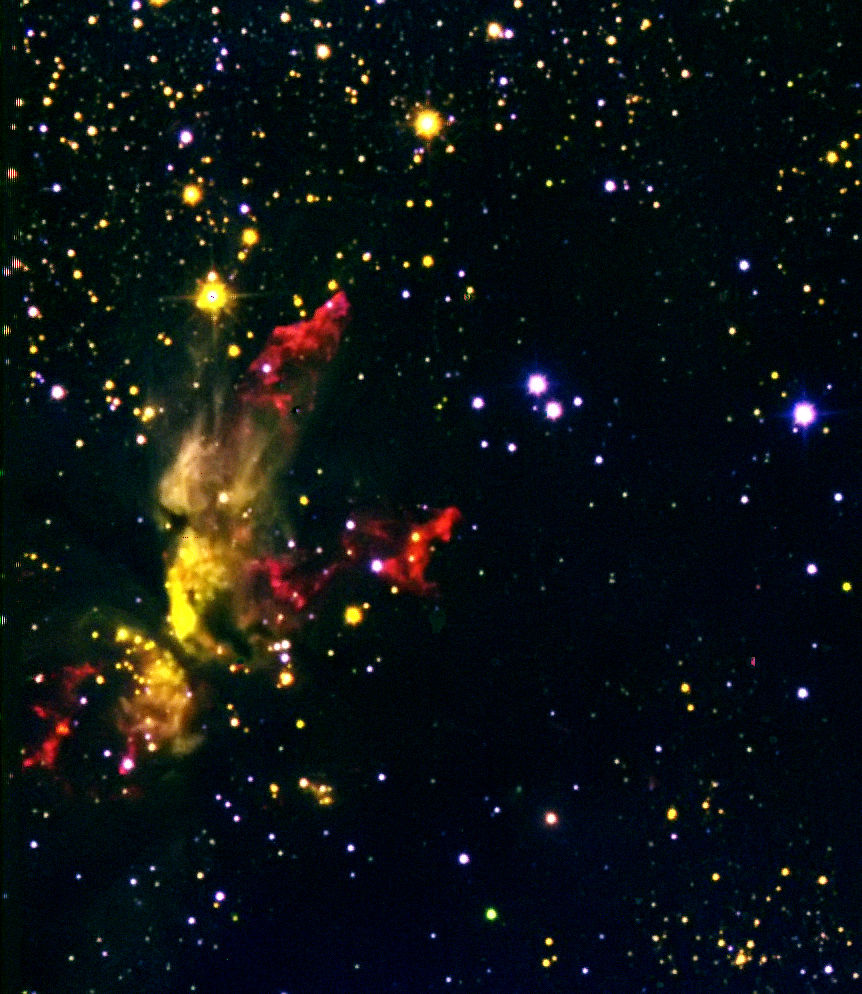We have recently overhauled our ASSA and Astrophysics modules to incorporate some of the exciting new develops in these areas such as next generation telescopes and space missions, NASAs return to the moon, astrobiology and build in more problem solving, investigative and evaluation skills to increase employability of our graduates.
Modules and Synopsis
There are 5 specialist undergraduate modules, 2 dedicated laboratory modules (one for each degree programme) and three advanced level courses available for those students on the integrated masters programmes (MPhys).
In addition to the mix of taught and lab modules all students doing the MPhys programme will also have the opportunity to do a 20 week research project working closely with one of our academics in their area of expertise. These project provide excellent research training and are a great stepping stone into a PhD and research focused career paths.
Taught Modules
PH304: Introduction to Astronomy and Light
This module provides an introduction to astronomy, beginning with our own solar system and ex-tending to objects at the limits of the universe. Straightforward mathematics is used to develop a geometrical optics model for imaging with lenses and mirrors, and this is then used to explore the principles of astronomical telescopes.
Year: 1st year
Availability: Everyone
PH507: Observational Astronomy and Exoplanets
This module builds on the brief introduction to astronomy previously taught in earlier stages. Students enhance their knowledge of astrophysics through the study of the theory, formalism and fundamental principles developing a rigorous grounding in observational, computational and theoretical aspects of astrophysics. In particular they study topics such as properties of galaxies and stars and the detection of planets outside the solar system.
Year: 2nd year
Availability: Physics with Astrophysics, ASSA
PH508: Spacecraft Design and Operations
This module introduces and develops students’ understanding of the major subsystems of a space-craft through the study of the theory, formalism and fundamental principles, as well as the framework to understand spacecraft trajectories and orbits and the basic ideas about management of space missions.
Year: 2nd year
Availability: ASSA
PH607: The Physics of Stars, Galaxies and Cosmology
This module provides in combination with previous topics a balanced and rigorous course in astro-physics for BSc students, while forming a basis for the more extensive MPhys modules. Students develop and enhance their knowledge of astrophysics through the study of the theory, formalism, and fundamental principles. This module covers for example the enhanced notions on the physics of stars, galaxies, general relativity,and cosmology.
Year: 3rd year
Availability: Physics with Astrophysics, ASSA
PH608: The Sun, the Earth and Mars
Students develop and enhance their knowledge on understanding of solar terrestrial physics, remotesensing and Martian science. For example, students will study the nature of solar activity, its effects on theEarth’s atmosphere and the near-Earth, communication satellites and current space missions to Mars.
Year: 3rd year
Availability: ASSA
PH709: Astrobiology and Solar System Science
This advanced specialist module provides students with in-depth knowledge of astrobiology as well as the science of the solar system’s formation and evolution. This includes the methods by which we explore our solar system, from study of planetary atmospheres and surfaces to missions to comets and asteroids.
Year: 4th year
Availability: All
PH711: Rocketry and Human Spaceflight
This advanced specialist module provides students with in-depth knowledge of astrobiology as well as the science of the solar system’s formation and evolution. This includes the methods by which we explore our solar system, from study of planetary atmospheres and surfaces to missions to comets and asteroids.
Year: 4th year
Availability: ASSA
PH712: Star Formation and Galactic Structure
This advanced specialised module will provide students with an understanding of the physics of star formation and galactic structures and includes lectures on the current state of the art facilities and instruments.
Year: 4th year
Availability: Physics with Astrophysics
Laboratory Modules
PH631: Astrophysics Data Analysis
Computational Astrophysics laboratory that provides an overview and practical experience in 5 distinct topics of astrophysics research and builds on the python programming the students are taught in stage 1. This is a specialist lab module developed to develop research and analytical skills.
Year: 3rd year
Availability: Physics and Astrophysics
PH632: Data Analysis Techniques in Astronomy and Planetary Science
This module focuses on the use of data processing and analysis techniques as applied to astronomical data from telescopes. Students will learn how telescopes and CCD cameras work, to process astronomical images and spectra and apply a range of data analysis techniques using software packages. Students will also engage in the scientific interpretation of images and spectra of astronomical objects.
Year: 3rd year
Availability: ASSA
Research Projects (PH700)
All MPhys students undertake a laboratory, theoretical or computationally-based project related to their degree specialism. These projects may also be undertaken by Diploma students. A list of available project areas is made available during Stage 3, but may be augmented/revised at any time up to and including Week 1 of Stage 4.
As far as possible, projects will be assigned on the basis of students’ preferences – but this is not always possible: however, the project abstracts are regarded as ‘flexible’ in the sense that significant modification is possible (subject only to mutual consent between student and supervisor).
The projects involve a combination of some or all of: literature search and critique, laboratory work, theoretical work, computational physics and data reduction/analysis. The majority of the projects are directly related to the research conducted in the department and are undertaken within the various SPS research teams.
Details on current research projects can be found here.
